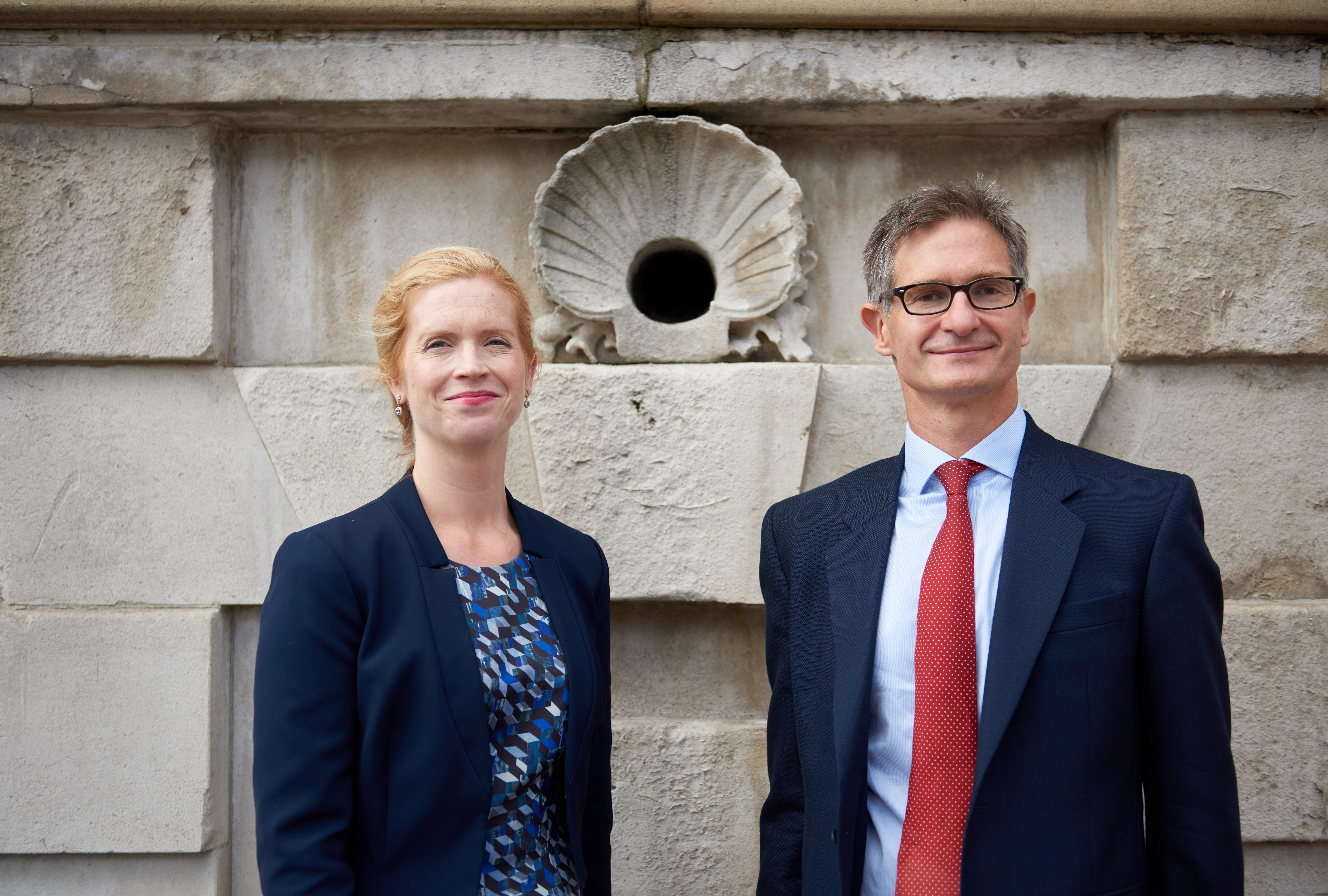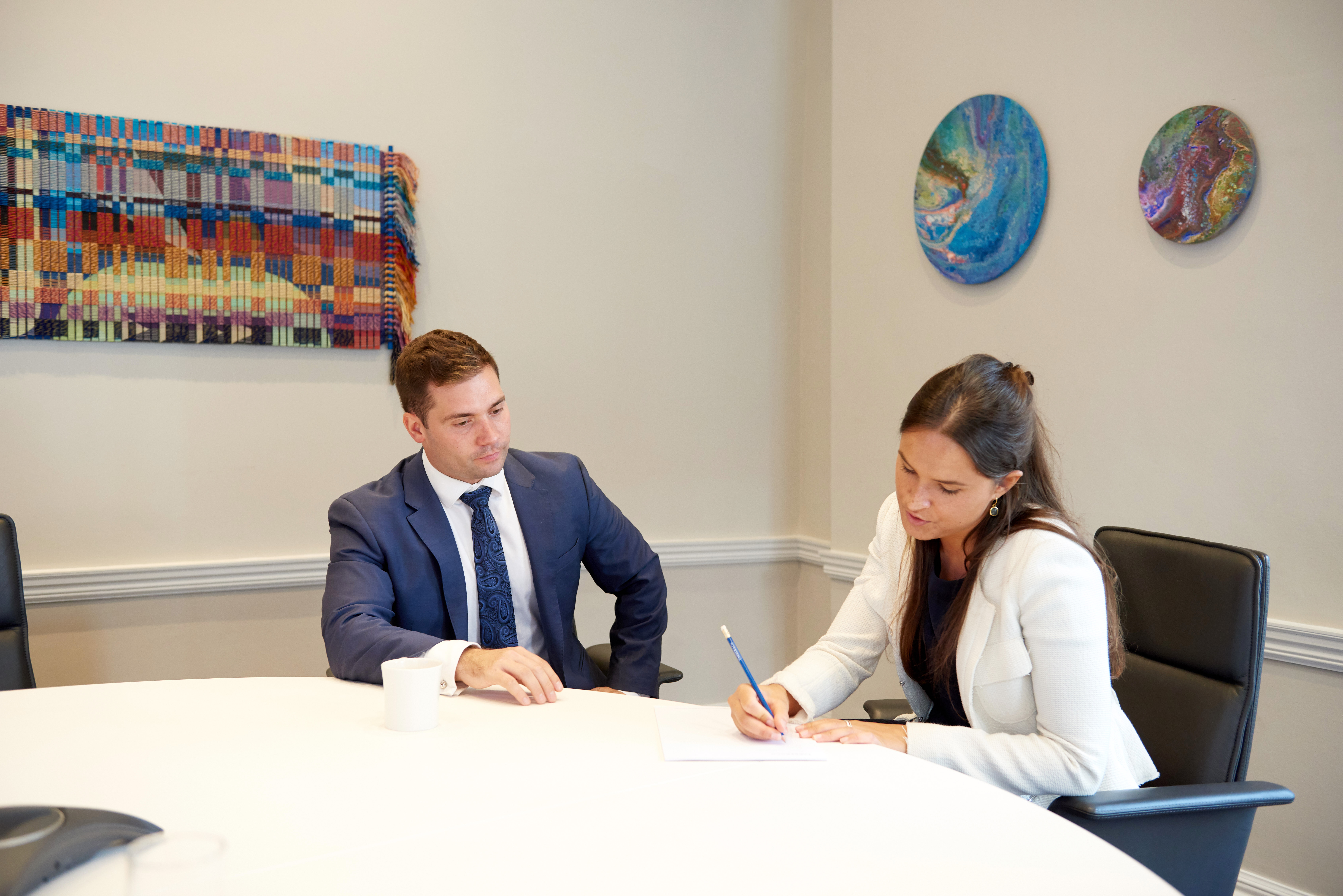The work environment is brilliant, with a truly collegiate feel. It strikes the right balance between efficiency, hard work and support.
In the year 1701 Frederick I was crowned the first King of Prussia, the last Habsburg King of Spain died without an heir, prompting the beginning of the War of Spanish Succession, and in England the convicted pirate Captain William Kidd was hanged at Execution Dock in Wapping. Meanwhile, over in central London Tempest Slinger set up his office at 5 New Square and established the legal firm that would go on to become Farrer & Co. Over 300 years later and the firm continues to prosper, serving the highest calibre of national and international clients in a range of practice areas from corporate, banking and employment to private client, family and charities law.
Despite Farrers’ thoroughbred history and strong values, the firm is resolutely focused on positioning itself for the future and refining its processes for attracting the best trainees. After being on the trainee interview panel for 11 years, this year Claire Gordon took over as the graduate recruitment partner and is excited about changes being implemented to the overall recruitment procedure: “We have made some changes to our processes this year, including working with Aspiring Solicitors, an organisation that aims to increase diversity in the legal profession. We want to ensure that we are being as objectively fair and transparent as we can be; so we have reviewed our interview process, the questions we ask and the criteria we apply, basically making sure that we are giving everyone a level playing field and hopefully getting the very best candidates that we can.”

Recruiting the right candidates is key for the future of the firm, but as Claire stresses, Farrers is not interested in building a cohort of identical trainees: “We do want people with great CVs, but that is not the be all and end all. Intelligence doesn’t just mean good grades, and we are also looking for people with bags of charm and common sense, who are real all-rounders.” She goes on to say that the firm “has no identikit mould – we like people to be different. We have no objection to trainees being quirky and interesting as our clients come from a huge range of backgrounds with a variety of legal issues, so for us it is good to have a diverse group of characters among our lawyers”.
We have made some changes to our processes this year, including working with Aspiring Solicitors, an organisation that aims to increase diversity in the legal profession.
First-year trainee Josh Pugsley is just such a candidate; before working as a paralegal at other law firms and securing his training contract at Farrers, he worked as an actor and a stage combat fight director. Looking at the current intake of 10 trainees he observes: “About half of us have had a different career before, so it is pretty common. If you are straight out of university the firm will be interested in you, but equally if you have had a completely different career it is also keen to see what you have got to offer.”
The firm offers a vacation scheme, which while not mandatory for would-be trainees, can prove to be incredibly useful, as Josh describes: “It was two weeks long and it was excellent, confirming to me that Farrers was where I wanted to go.” Although there is no interview during the vacation scheme, candidates are assessed by supervisors and after the scheme they can reapply for the training contract. As Josh explains, once the application is received “they look at how you did on the vacation scheme and the notes from supervisors”, then there is a final interview with two partners. “The interview itself was very conversational which was nice; they focus on your CV and really try to understand what you’re about, why you want to come here and what your strengths and weaknesses are. The interview is quite thorough, but it was a conversation, they weren’t playing games or trying to make it a difficult experience.”
Once a contract has been secured at the firm, the training and recruitment team are keen to ensure that all trainees are settled and feel part of the Farrers family on their first day. “Straightaway they pair you up with a buddy, who is usually a junior associate and someone who can remember what being a trainee is like,” describes Josh. “Between securing your training contract and being a year into the firm, over those three years you will go for regular lunches and have a catch up and a chat with them. It makes your arrival at the firm a lot smoother and you can ask them any questions about what you need to do before you start on day one.” The firm tries hard to make the transition as easy as possible, as Josh stresses: “Before you start they will pay your GDL and LPC fees and give you a bursary, and invite you to any firm-wide events. They also have trainee-specific events, like a Christmas lunch and Easter open day, all of which help you feel a part of the firm before you join.”
Intelligence doesn’t just mean good grades, and we are also looking for people with bags of charm and common sense, who are real all-rounders.
Anthony Turner, who is taking over the role of training principal from Paul Krafft, emphasises that this level of support is a crucial part of the training contract as trainees are expected to hit the ground running when they start: “We expect them to be proactive, take responsibility, learn and be engaged in what they are doing. We have a wide range of seats and we expect trainees to do as much as they can to help out; we want them to start thinking about the role of a lawyer and being a really helpful spoke in the Farrers wheel.”
Farrers sets itself apart in the way that its training contract is organised, as Anthony explains: “The main difference is our six-seat system, where most firms will have four six-month seats. Our four-month seats mean that trainees see a greater number of departments; Farrers is a broad firm in the sense that roughly half is corporate and commercial-related and the other half is private client-related, so trainees gain a good insight into the two sides with the short seats. The final four-month seat is the one into which the trainee will qualify, so they will have done eight months in their chosen seat before they become a qualified solicitor.”
As Claire points out, although this system may throw up challenges for the firm’s individual departments, it is really important for the trainees: “Our six-seat system is extremely valuable and potential candidates may not realise that. Having that opportunity to see five rather than four seats is fantastic. It can be a challenge for the firm because after three or four months in a seat, trainees become really useful and then they move on, but this is an investment we make so trainees can gain more experience and have a seamless transition, which we think is key.”

Anthony emphasises that the whole point of the training contract is to “help trainees find what they are good at; not all individuals will be naturally suited to all practice areas”. To enable this, variety is key: “The training is quite different, principally because we do a broad range of work. If you went to many City firms you would be a corporate lawyer of some form, whereas at Farrers you could be a family lawyer, a private client lawyer, a banking lawyer, a financial services lawyer or an employment lawyer, so you will definitely find your fit.”
This variety of work can be daunting and expectations are high for trainees when they start their contract, but the support that the firm offers is a central aspect of the training and this is provided by a recruitment and training team which consists of individuals from across the firm. Claire describes the systems in place: “We have a training principal who takes overarching responsibility and then each trainee will have a buddy, an individual principal and a supervisor in each seat, with whom they usually sit in an office. This means that they are closely supervised to ensure that they get a good mix of work, are not overloaded and have someone to learn from and work with.” From his recent experience, Josh explains that the contact he has had with his principal, who is head of the banking team, has been invaluable: “He and I can go for a coffee or lunch and talk about my career in specific terms, where I am going and whether I enjoy it, and how I can improve – to have that strand of support is really useful.” The aim of the individual principals is to provide the trainees with someone who is looking out for them and is engaged in their progress, as Claire observes: “That is something that doesn’t stop; I still see my training principal 20 years on – there is often true friendship!”
This high level of retention is another key characteristic of Farrers; the firm takes on 10 trainees every year and many will stay for a very long time, which plays into its stable and consistent identity. “We are very sure of who we are as a firm,” Anthony expounds. “We have a very clear strategy, to maintain and grow our position as a pre-eminent independent London law firm.”
If you are straight out of university the firm will be interested in you, but equally if you have had a completely different career it is also keen to see what you have got to offer.
Farrers manages to maintain this retention rate by offering trainees the opportunity to work at the top of their game in a broad selection of practice areas – just one of the ways the firm particularly stands out from its competitors, as Anthony highlights: “At Farrers you will get the breadth of training to make a better – and wider – choice of where to qualify. When you do qualify, nearly all of our teams are top ranked in the legal directories, so they are excellent at what they do and have fantastic clients. There aren’t that many firms that have the same breadth to the same standard.”
For a firm that has been so successful for so long, establishing and maintaining a consistent identity has been incredibly important and will continue to be so in the future, as Claire sums up: “We know who we are, we like who we are and we will carry on doing what we do best. Although we are continually evolving and moving with the times, it is really important to us to stay true to our values. Any new idea needs to be true to our vision and culture; if it isn’t, then it won’t happen. Keeping the sense of who we are while looking to the future and being proactive is the reason why the firm has been around for so long. Simply put, it’s a great place to work!”
By James Lilford

Best Trainer – Medium City Firm:
The work environment is brilliant, with a truly collegiate feel. It strikes the right balance between efficiency, hard work and support.

